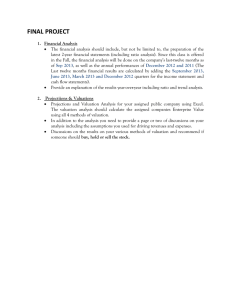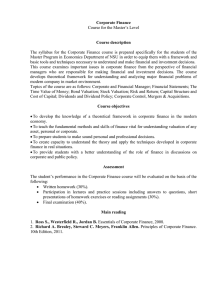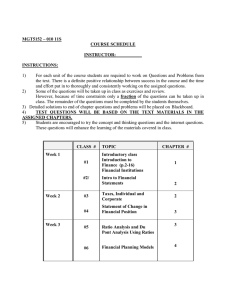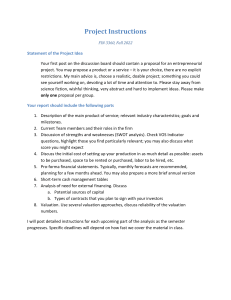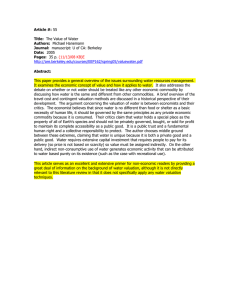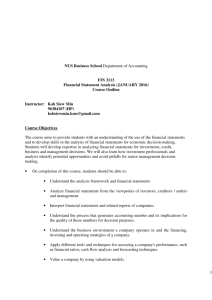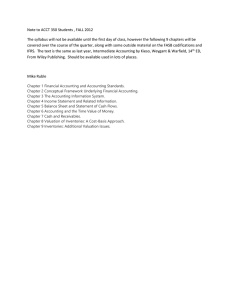a) Recognition of tangible and intangible benefits by policy makers
advertisement
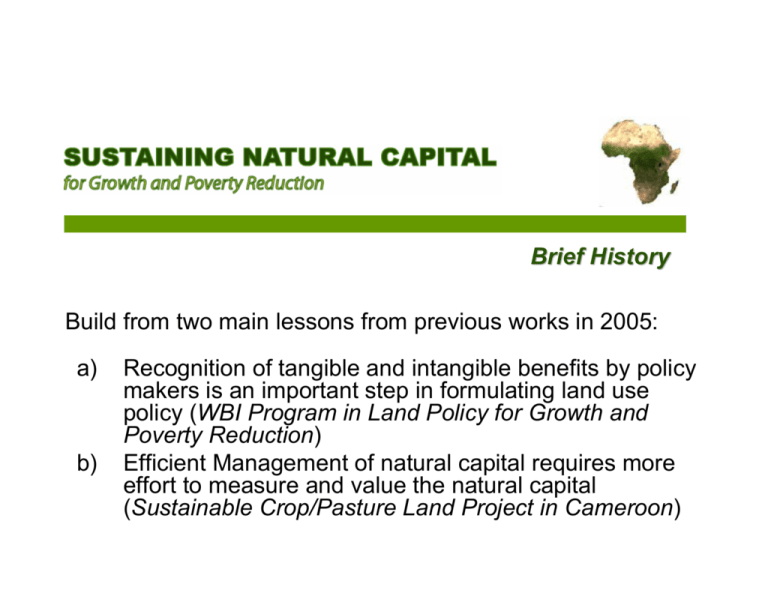
Brief History Build from two main lessons from previous works in 2005: a) b) Recognition of tangible and intangible benefits by policy makers is an important step in formulating land use policy (WBI Program in Land Policy for Growth and Poverty Reduction) Efficient Management of natural capital requires more effort to measure and value the natural capital (Sustainable Crop/Pasture Land Project in Cameroon) The main constraints • Lack of essential data on both physical quantities & attributes of natural capital and their changes over time • Absence of mechanism to coordinate measurement and valuation processes of natural capital • Insufficient knowledge of the true cost of natural capital degradation Government Leadership Role Creating a Leadership Policy Group (i.e. a national task force) to establish a “Natural Capital Clearinghouse information” which will: a) Carry out baseline data on the state of the country natural capital b) Estimate its loss and monitor its degradation over time c) Account the goods and services provided by natural capital d) Design land-use policies to conserve and restore natural capital Contribution of the SNC Project • Produce knowledge materials on how to measure, value and monitor natural capital goods and services • Share information on best practices on measurement and valuation processes of natural capital • Improve in-country skills on the use of instruments and tools for measure and valuation of natural capital
